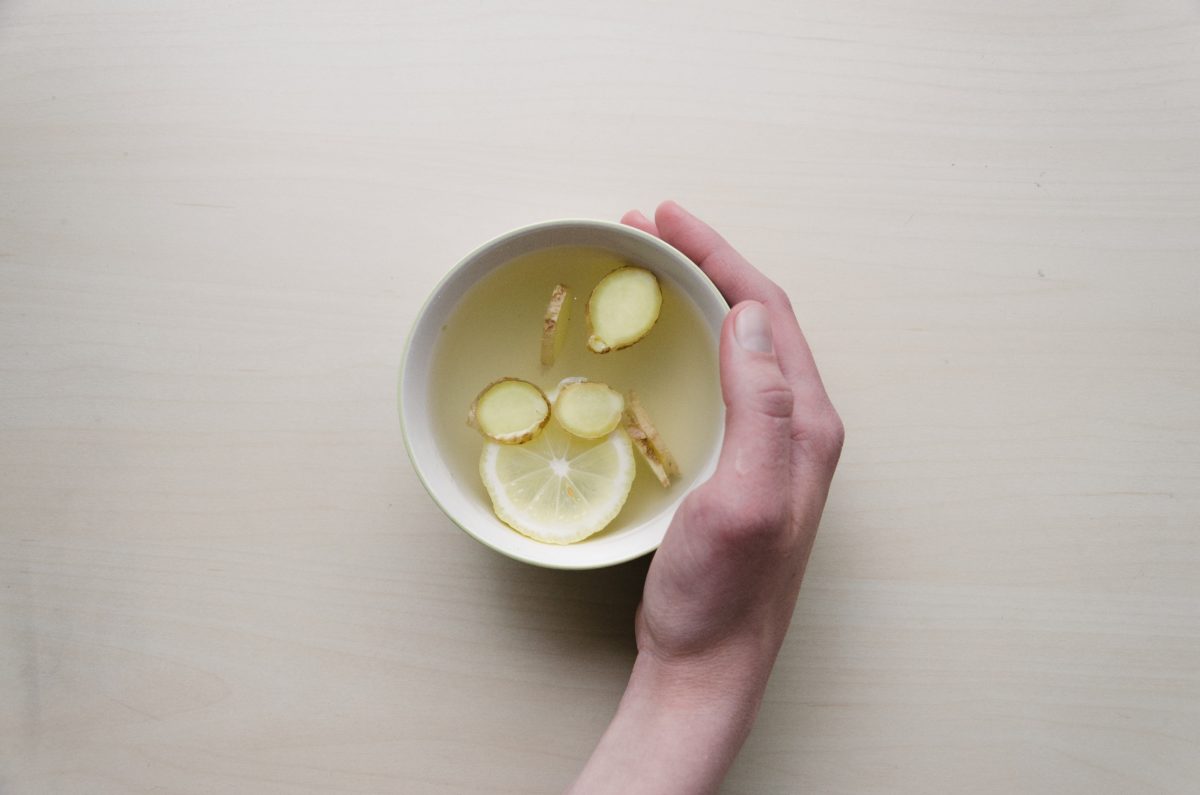Nutrition Spotlight: The Power of Ginger

Photo by Dominik Martin on Unsplash
Ginger comes in many forms, from raw to powdered, and it has many health benefits and natural uses other than its great taste. For thousands of years, Arabic, Indian, and Asian healers prized ginger as both a food and medicine. This tropical plant, in the same botanical family as turmeric and cardamom, was effectively used in the past to relieve nausea and vomiting caused by illness and seasickness.
Reduces Pain & Inflammation
Ginger reduces pain and inflammation, making it valuable in managing arthritis, headaches, and menstrual cramps.
Chronic Inflammation: The Slow Burn of Disease By Nicole Crane. B.S., NTP – Click to read more!
Different Forms Available
Take it in whatever form appeals to you. If you’re pregnant: Try it in tea, soup, or capsules. It’s also available in a carbonated beverage and crystallized.
For Motion Sickness
To counter motion sickness: Taking 1 gram of dried, powdered, encapsulated ginger 30 minutes to two hours before travel can help ease travel related nausea.
Soothing Recipe for Nausea
Here’s a soothing recipe from the book ‘500 Time-Tested Home Remedies and the Science Behind Them’: Zingy Minty Nausea Fighter (2 servings) In a saucepan, bring 2 cups of water to a boil. Add 2 teaspoons of dried peppermint (or 1 tablespoon fresh), and 1 teaspoon grated fresh ginger. Turn off the heat, cover, and steep for 15 minutes. Strain out the herbs. Stir in 1 teaspoon of honey.
For thousands of years, many different cultures recognized the power of herbs and their great use in promoting good health and healing. A wide range of scientific research is now confirming the many therapeutic health benefits of popular herb extracts.
New Study: Ginger Eases Chemo Nausea
It is well known that herbal remedies can have a brilliant impact on many of the symptoms that come with having chemotherapy, and now ginger has become the latest example to try. People with cancer can reduce post-chemotherapy nausea 40% by using ginger supplements, along with standard anti-vomiting drugs, before undergoing treatment, according to scientists at the University of Rochester Medical Center.
About 70% of cancer patients in chemotherapy complain of nausea and vomiting. “There are effective drugs to control vomiting, but the nausea is often worse because it lingers,” said lead author Julie L. Ryan, assistant professor of dermatology and radiation oncology at Rochester’s James P. Wilmot Cancer Center. “Nausea is a major problem for people who undergo chemotherapy and it’s been a challenge for scientists and doctors to understand how to control it,” said Ryan, a member of Rochester’s Community Clinical Oncology Program Research Base at the Wilmot Cancer Center.
New Study: The herb and vegetable Garlic and Tomatoes Lower Prostate Cancer Odds – Read more!
Her research is to be presented at the American Society of Clinical Oncology meeting in the Patient and Survivor Care Session on May 30 in Orlando, Fla. This is the largest randomized study to demonstrate the effectiveness of ginger supplements to ease the nausea. Previous small studies have never focused on taking the common spice before chemotherapy.
The Phase II/III placebo-controlled, double-blind study included 644 cancer patients who would receive at least three chemotherapy treatments. They were divided into four arms that received placebos, 0.5 gram, 1 gram, or 1.5 grams along with antiemetics (anti-vomiting drugs such as Zofran, Kytril, Novaban, and Anzemet). Patients took the ginger supplements three days before chemotherapy and three days following treatment. Patients reported nausea levels at various times of day during following their chemotherapy, and those who took the lower doses had a 40% reduction. Ginger is readily absorbed in the body and has long been considered a remedy for stomachaches.
Source: http://www.msn.com/en-us/health/medical/7-health-benefits-of-ginger/ss-BBhc9gD